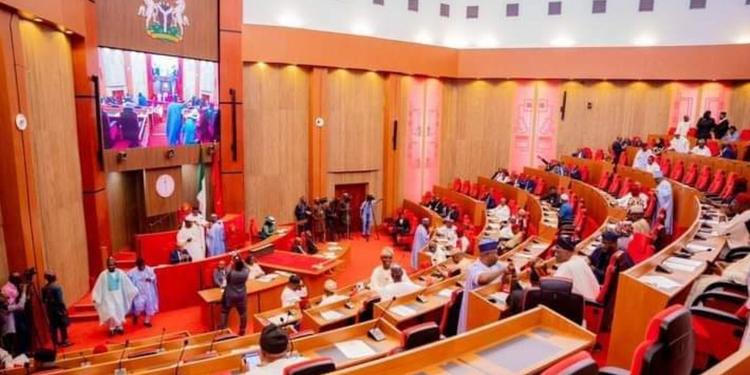The Nigerian Senate has granted a second extension for the implementation of the capital component of the 2024 national budget, shifting the deadline from June 30 to December 31, 2025.

The decision was made during Tuesday’s plenary session following the presentation and rapid passage of a bill to amend the Appropriation Act. The bill underwent its first, second, and third readings and was passed without delay. Deputy Senate President Barau Jibrin, who presided over the session, announced the passage after it was reviewed by the Senate Committee on Supply.

Leading the debate, the Chairman of the Senate Committee on Appropriation, Senator Olamilekan Adeola (APC, Ogun West), emphasized the necessity of the extension. He explained that additional time is needed for the federal government to complete numerous capital projects captured in the 2024 budget.
Adeola also cited financial constraints, noting that the government lacks sufficient resources to accommodate all proposed expenditures within the original timeframe. He urged fellow lawmakers to approve the extension to prevent a wave of abandoned projects across the country.

Background: Second Extension Within a Year
This marks the second time the capital expenditure component of the 2024 budget has been extended. The first extension came in December 2024, when President Bola Ahmed Tinubu requested that the National Assembly shift the implementation deadline from December 31, 2024, to June 30, 2025. That extension was approved after deliberations in both the Senate and the House of Representatives.

However, as the June deadline approached, it became clear that many critical infrastructure projects remained incomplete, prompting the need for another extension.
Dual Budgets Now in Effect
With the latest extension, Nigeria is now operating two budgets simultaneously.
The 2024 budget, still undergoing capital implementation.
The 2025 budget, which has already been passed and is in active operation.
Mixed Reactions
The recurring extensions have sparked debate. Critics argue that repeated delays in budget execution reflect systemic inefficiencies within government Ministries, Departments, and Agencies (MDAs). On the other hand, proponents of the extension say it allows for better project completion, prevents wastage, and ensures Nigerians receive full value from capital investments.
The Senate’s move underscores the challenges of budget execution in Nigeria and highlights ongoing struggles with project timelines, funding constraints,and bureaucratic bottlenecks.





